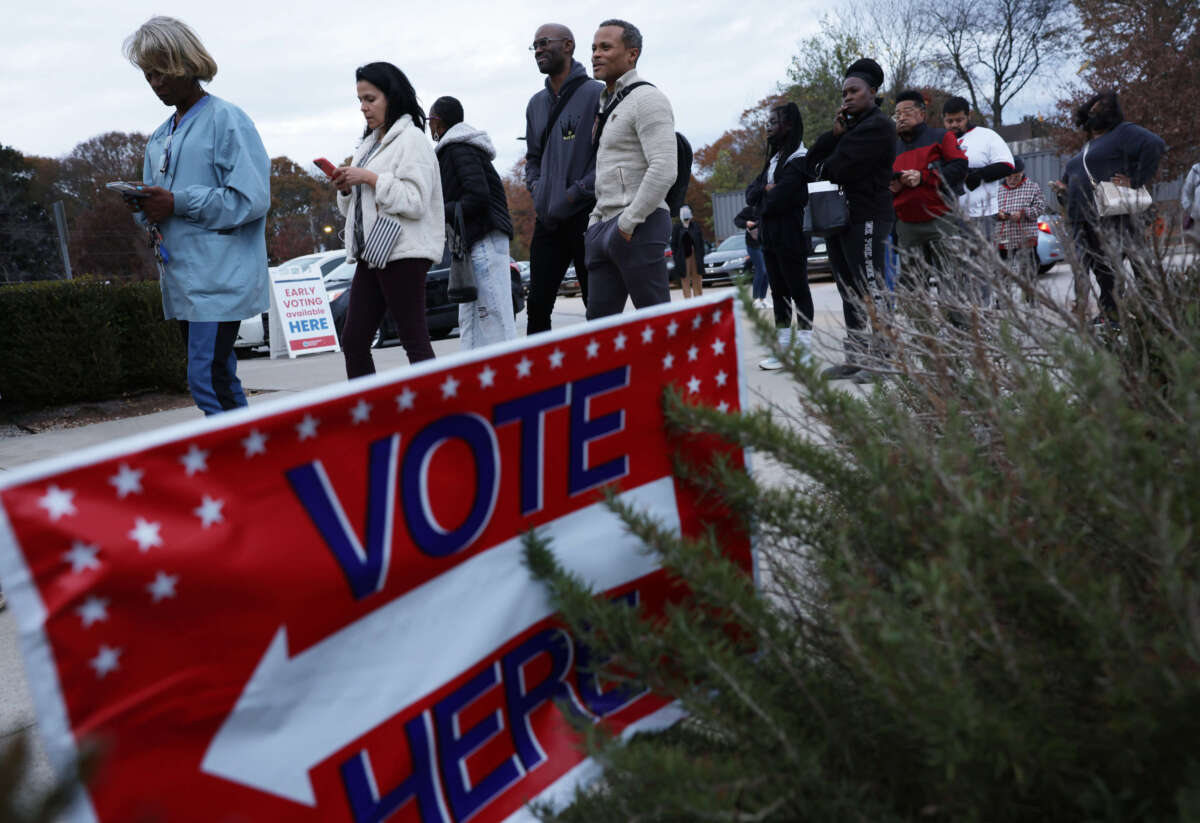The Republican-controlled Georgia Election Board has voted to allow county officials the ability to engage in “reasonable inquiry” of elections before they have to certify results in a political contest — a move that could run afoul of state elections laws and could result in local officials making such decisions based on partisanship rather than legitimate concerns.
State law in Georgia allows for challenges to election outcomes, but they generally come from recounts or through the state court system. The state election board’s new rule, however, allows county election officials to decide for themselves whether an inquiry is needed.
Missing from the new rule is any definition of what a “reasonable inquiry” is — no restrictions are included for the term, allowing local officials to decide for themselves what a reasonable inquiry might entail.
The rule also allows those officials to delay or refuse to certify election results. Critics say the rule change contradicts state election laws, which state that local officials “shall” certify the results — meaning their job is to solely produce the results, not discern whether they’re accurate or not.
The change comes just shy of four years from when Donald Trump, then president and now the Republican Party’s presidential nominee, pressured state elections officials in Georgia “find” him enough votes to overturn President Joe Biden’s win of the state in the 2020 race. Trump alleged, citing no factual evidence of any kind, that the election in Georgia (and in many other states) had been rife with fraud.
Last weekend, when it appeared that the Georgia Election Board would vote in favor of these new changes, Trump lauded the Republican members of the panel during a rally in Atlanta.
“They’re on fire, they’re doing a great job,” Trump said, naming the three members by name and describing them as “pit bulls fighting for honesty, transparency and victory.”
That mention of “victory” in connection with the board’s decision appears to demonstrate that Trump views their action as directly helping him to win the state in the November election.
Legal action against the new rule is likely to follow, with litigants citing the state laws that the rule contravenes. Critics lambasted the rule as both improper and illegal.
“Trump-backed state election board members … want to change our election rules to give power to local elections officials to halt the counting of votes and slow down or refuse certification if they say there are any irregularities, making the certification of election results discretionary,” said state Rep. Sam Park (D), who added that their duties “are mandatory … not discretionary.”
“Inconsistencies in certification could tie up both the counties and the state in expensive and time-consuming litigation,” said Kristin Nabers, the Georgia state director for the voting rights organization All Voting Is Local Action. “This could result not only in counties missing the certification deadline but also in undermining public trust and confidence in our elections.”
We’re not backing down in the face of Trump’s threats.
As Donald Trump is inaugurated a second time, independent media organizations are faced with urgent mandates: Tell the truth more loudly than ever before. Do that work even as our standard modes of distribution (such as social media platforms) are being manipulated and curtailed by forces of fascist repression and ruthless capitalism. Do that work even as journalism and journalists face targeted attacks, including from the government itself. And do that work in community, never forgetting that we’re not shouting into a faceless void – we’re reaching out to real people amid a life-threatening political climate.
Our task is formidable, and it requires us to ground ourselves in our principles, remind ourselves of our utility, dig in and commit.
As a dizzying number of corporate news organizations – either through need or greed – rush to implement new ways to further monetize their content, and others acquiesce to Trump’s wishes, now is a time for movement media-makers to double down on community-first models.
At Truthout, we are reaffirming our commitments on this front: We won’t run ads or have a paywall because we believe that everyone should have access to information, and that access should exist without barriers and free of distractions from craven corporate interests. We recognize the implications for democracy when information-seekers click a link only to find the article trapped behind a paywall or buried on a page with dozens of invasive ads. The laws of capitalism dictate an unending increase in monetization, and much of the media simply follows those laws. Truthout and many of our peers are dedicating ourselves to following other paths – a commitment which feels vital in a moment when corporations are evermore overtly embedded in government.
Over 80 percent of Truthout‘s funding comes from small individual donations from our community of readers, and the remaining 20 percent comes from a handful of social justice-oriented foundations. Over a third of our total budget is supported by recurring monthly donors, many of whom give because they want to help us keep Truthout barrier-free for everyone.
You can help by giving today. Whether you can make a small monthly donation or a larger gift, Truthout only works with your support.
